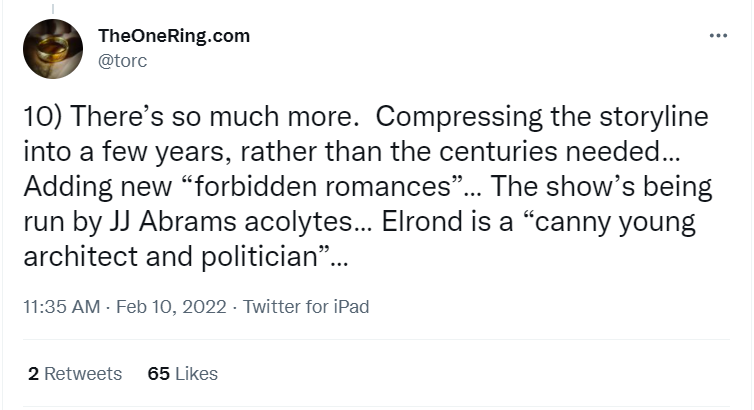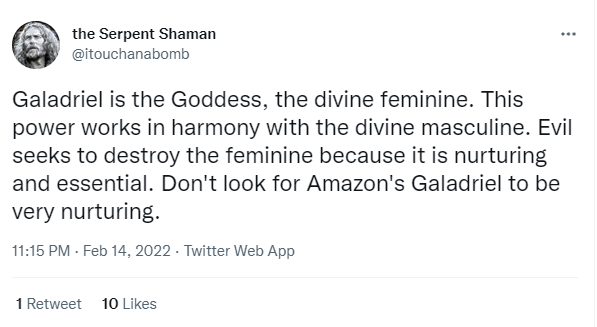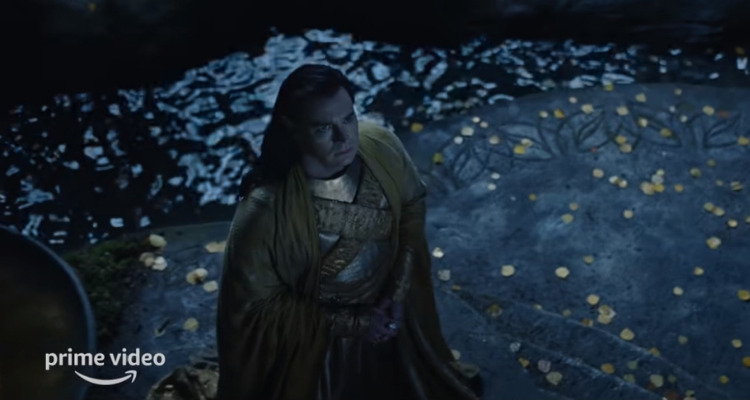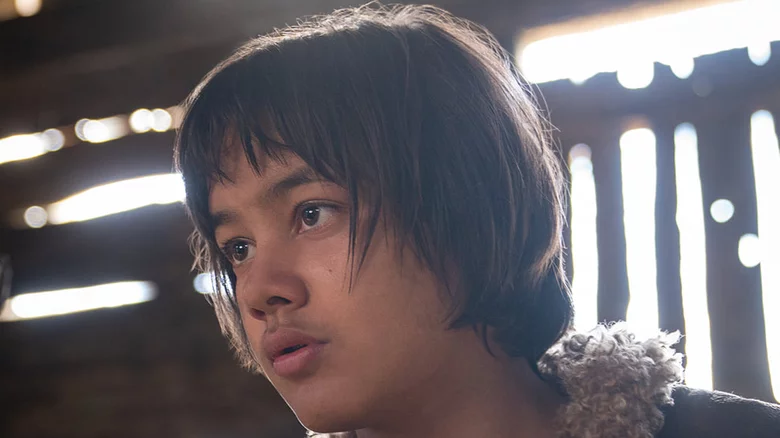“Orques” e “gobelins”: novas traduções de obras de Tolkien no Brasil geram discórdia entre fãs e editora
HarperCollins adquiriu direitos para publicar livros do autor em 2018, causando debates nas redes sociais nos últimos meses
27/05/2019 - 11h26minAtualizada em 27/05/2019 - 22h21min
Júlio Boll
"A Queda de Gondolin" e "O Silmarillion": obras ganharam novas versões da HarperCollinsDivulgação / HarperCollins
Dragões, a destruição de
O Anel, a trajetória de Frodo e diversas criaturas mágicas. Não é preciso relembrar, em 2019, os encantos do universo de
O Senhor dos Anéis, criado pelo britânico
J.R.R. Tolkien, ainda mais depois de três adaptações para o cinema no início dos anos 2000 e de obras cultuadas por milhares de geeks em todo o planeta. No entanto, quando a calma parecia dominar o mundo criado pelo autor, uma editora e fãs travaram uma calorosa discussão.
Leia Mais
Em 2018, a editora HarperCollins do Brasil comprou os direitos para publicar as obras de
Tolkien, incluindo contos inéditos no país. Até aí, o cenário era de festa: nerds comemoravam a possibilidade de comprar, em versão nacional, histórias até então não publicadas em terras brasileiras, como
A Queda de Gondolin e
Beren e Lúthien. As duas obras já estão disponíveis nas livrarias de todo o país e atingiram os rankings de mais vendidos.
— Este processo foi fruto de muito trabalho em conjunto, porque a editora entendeu o potencial dessas obras, que tinham um valor inestimável para fãs e que mereciam ser exploradas. Começamos esse processo do zero mesmo — explica Samuel Coto, gerente editorial da HarperCollins.
Ou seja, a publicadora captou os manuscritos de Tolkien, formou um conselho editorial com tradutores especialistas no autor e traduziu todo o conteúdo. Neste processo, iniciou-se uma guerra que tem aquecido as redes sociais nos últimos meses: termos como “orcs” e “goblins” - que foram eternizados na memória afetiva de fãs de todo o país – foram transcritos novamente para “orques” e “gobelins”, respectivamente. No caso de "anões", a editora optou por "anãos", usando a mesma lógica de Tolkien ao manter o radical em inglês incluindo um "s" para indicar plural.
“Todas as escolhas foram frutos de muita pesquisa e estão apoiadas nas orientações de tradução do próprio autor, de modo a garantir que estas novas traduções sejam as mais criteriosas na história destes livros no Brasil. Confiamos muito neste trabalho, mas estamos atentos ao feedback dos fãs para nos certificar de que os livros mantenham o mais alto nível de qualidade”, diz a HarperCollins, em nota oficial enviada à reportagem de
GaúchaZH.
Além disso, outros erros simples de palavras como “son” ("filho", em português), que foi traduzida como “irmão” em uma primeira edição, passaram reto pela editora. A HarperCollins frisa, no entanto, que a terceira edição – que está nas prateleiras agora – já está corrigida.
Eduardo Olifer, do Tolkien Brasil, diz que irá procurar a família de Tolkien atrás de apoio para que uma revisão seja feitaArquivo pessoal / Eduardo Olifer
“Não houve debate”
Principal articulador do grupo que questiona as versões da HarperCollins, Eduardo Olifer é fundador do site Tolkien Brasil e fã das obras desde a década de 1990. Em sua biblioteca pessoal, estão cerca de 900 livros do universo do escritor britânico. Além disso, ele mantém três canais no YouTube sobre literatura – sendo dois atrelados ao ídolo literário.
Olifer fez uma parceria com a editora no ano passado e foi chamado para trabalhar em conjunto com as traduções, entre setembro do ano passado e fevereiro deste ano, mas pontua que abriu mão por conta dos erros. Ele frisa que alertava sobre os termos equivocados desde o início dos trabalhos.
Em janeiro de 2019, criou um grupo no
WhatsApp com o conselho da editora para expor alguns dos termos que considera errôneos. No entanto, ele fala que foi respondido somente por Samuel tanto na conversa pelo aplicativo de mensagens quanto em outras tentativas posteriores, por publicações em seu site e pelas redes sociais.
Segundo Olifer, seus argumentos estão baseados nas traduções em outros idiomas, no
Guia Para Nomes de O Senhor dos Anéis (do próprio
Tolkien) e na pesquisa junto a tradutores das obras em outros países, como Alemanha, Espanha, Polônia, Itália e França. Além disso, buscou outros especialistas no escritor, como Jared Lobdell, editor do
A Tolkien Compass (coletânea de textos do próprio Tolkien) e
Vittoria Alliata di Vilafranca, que realizou a primeira tradução para o italiano, com a participação do próprio Tolkien em vida.
— Nesse guia, escrito em 1967, Tolkien diz logo no início que as nomenclaturas deveriam ser “traduzidas para o outro idioma de acordo com seu significado (o mais próximo possível)”. Ele desejava que a obra fosse lida com menos estranheza pelos leitores que se preocupariam com os nomes estranhos de seu mundo. Então, a editora Harper Collins Brasil decidiu mudar os nomes originais do Tolkien, que já estavam consolidados entre os leitores e eram palavras do próprio Tolkien. A Harper Collins Brasil alterou a palavra "Orc" para "Orque" e "Goblin" para "Gobelim". Ocorre que "Orque" e "Gobelim" são palavras em francês e a mera substituição de um idioma por outro não é uma tradução pelo significado (já que logicamente "Orque" não tem significado em Português e Gobelim em nossa língua é apenas um tipo de tapete francês). Seria como trocar a palavra em inglês "Book" por "Buch" em Alemão, o leitor brasileiro ficaria sem o significado da palavra. No próprio
Guia, diz que as palavras "Orc" e "Goblin" deveriam ser mantidas no original (em caso de não existir criaturas com os mesmos significados) ou traduzidas por uma criatura que fosse equivalente no idioma de tradução ("Goblin" seria um duende ou trasgo, enquanto "Orc" não tem equivalente em português) — alega Olifer.
O líder do Tolkien Brasil fez três vídeos sobre o assunto, com uma hora de duração cada, além de artigos com citações do escritor britânico e um arquivo de mais de 60 páginas sobre os conteúdos que considera problemáticos. Mesmo assim, ficou sem resposta:
— Em suma, não ocorreu nenhum debate sobre o tema. Simplesmente fiz as publicações de textos no Tolkien Brasil falando sobre “orc” e seus significados e fui mandando para o editor. Tempo depois, a editora publicou uma nota de resposta. Gravei o vídeo mostrando que não entenderam ou não leram os artigos. Depois, o tradutor fez o texto resposta no Facebook. Depois disso, os contatos se encerraram e a editora não respondeu nenhuma mensagem – lembra Olifer.
Ele garante que sua preocupação é com os erros e destaca que seu desejo é ver "algo digno do autor aqui no Brasil" e, por isso, decidiu se afastar da editora:
— Diante das circunstâncias, decidimos distanciar da editora Harper Collins Brasil, por não sentirmos mais segurança nos trabalhos que realizam e pelo fato deles não atenderem mais nossas mensagens. Além dos indicados, encontramos diversos erros nos livros e decidimos reunir e encaminhar para a família Tolkien e a editora britânica. A editora brasileira alega que as traduções são supervisionadas pela Harper Collins Britânica, mas é importante ressaltar que as traduções da Martins Fontes também foram e, no entanto, continham também diversos erros. Assim, diante da falta de diálogo da editora a solução é pedir para que os responsáveis pelos direitos autorais verifiquem isso.
Cesar Machado, do Tolkien Talk, mediou um debate sobre os termos em livraria: "Isto deveria ter sido feito antes"Arquivo pessoal / Cesar Machado
“Não vejo problema em ‘orques’”
Na onda contrária, César Machado acredita que não há problemas com a tradução da HarperCollins. Criador do canal Tolkien Talk, ele começou a se aventurar pelas tramas do britânico após o lançamento de
A Sociedade do Anel, em 2001, nos cinemas. Desde então, atua em fóruns e sites dedicados ao universo fantástico.
Ele entende que a editora optou por "passar um rolo compressor em cima de tudo" e começar do zero. Em janeiro, mediou um debate na Livraria Vila, em São Paulo, no qual conversou com os novos tradutores das obras sobre as alterações realizadas. Em seu canal no YouTube, possui mais de 45 mil inscritos - e o clipe mostrando a conversa teve quase cinco mil visualizações.
— Não vejo problema em “orques” e “gobelin”, porque é algo que deveria ter sido feito desde o início. O trabalho de outros tradutores pede maturidade do público e entendo que deve-se chegar a um meio-termo – acredita o estudioso.
Ele conta que alertou a editora de que ela enfrentaria queixas, mas que a publicadora aceitou fazer a quebra de um paradigma e tocar em memórias afetivas:
— Acredito que as reclamações sejam menos de 1%. Por termos ligações afetivas aos termos, ok, são críticas válidas, mas tecnicamente eles não estão errados.
Em relação às obras, Cesar aprovou a produção: ele gostou das versões em capa dura e da ideia de manter os desenhos originais, que deram mais poder ao projeto da editora.
Editora lançou a biografia "J.R.R. Tolkien" em agosto de 2018 e se prepara para divulgar "O Hobbit" em julho deste anoDivulgação / HarperCollins
“Versamos sobre a obra em inglês”
Para realizar estas novas traduções, a HarperCollins criou um conselho formado pelos tradutores Ronald Kyrmse (que já era tradutor das obras de Tolkien no Brasil, de edições anteriores pela WMF Martins Fontes), Gabriel Brum (que é especialista em literatura fantástica), e o escritor e jornalista Reinaldo José Lopes (mestre e doutor em Letras pela USP com foco em
J.R.R. Tolkien). A equipe conta também com o gerente editorial Samuel Coto. Além disso, a companhia literária conta que fã-clubes interessados no projeto foram consultados, como o Tolkien Talk.
Segundo Reinaldo, os quatro profissionais trabalharam versando sobre as obras de Tolkien em inglês – esta dinâmica é sugerida pelo próprio Tolkien, no
Guide to the Names in The Lord of the Rings (Guia Para Nomes de O Senhor dos Aneis, em tradução livre), de 1967. Quando há dúvida, os tradutores devem recorrer a este escrito e ao
Apêndice F de
O Retorno do Rei (terceiro livro da saga).
— Não fizemos consultas em outros idiomas, porque cada um tem a sua especificidade e soluções do espanhol, italiano e francês, que não necessariamente funcionariam em português, e porque queríamos fazer algo diferente. A proposta é voltar de maneira radical às origens linguísticas e lógicas dos textos de Tolkien — explica Reinaldo.
Conforme
o Guia Para Nomes, o termo "orc" pode ser traduzido a partir do inglês para o idioma correspondente. No entanto, em nenhum momento o criador explica sobre o plural, que tem causado incômodo aos fãs. Tolkien frisa, nestes casos, que os tradutores responsáveis têm autonomia para decidir o que melhor combina com a língua final.
— Sobre gobelins e orques, não existem termos para a tradução que tenham significado semântico em português. Não poderíamos usar ogros e duendes, que pensariam no
Shrek ou em bichinhos bonitinhos da natureza, respectivamente (risos). Não tem equivalente claro e buscamos refletir a presença histórica na língua portuguesa — destaca o tradutor.
Além disso, Reinaldo explica que todas as decisões foram tomadas em conjunto, até mesmo porque estas criaturas já ganharam um contexto afetivo para leitores. Mesmo assim, optou-se por alterar a estrutura final, enraizando-se ao português clássico.
Em relação à palavra "gobelin", a questão é ampliada. Por não estar citado
no guia assinado por Tolkien, a editora deveria ter mantido o radical em inglês (
goblin) – incluindo o “s” para o plural -, mas também é passível do termo ganhar independência dos tradutores para decidir, que também devem priorizar a sonoridade na avaliação.
— Ficamos preocupados, porque pensamos se o trabalho, que foi feito com muito amor, vai ser jogado no lixo por causa de discussões menores, pequenas e, muitas vezes, sem embasamento técnico. Estamos trabalhando no coletivo. É chato — desabafa Reinaldo.
O gerente Samuel Coto lembra que o grupo de trabalho tem o aval da família de
Tolkien, incluindo sobre “o trabalho dos tradutores e suas decisões”.
— Em alguns casos, não iremos agradar a todos e a memória afetiva interfere nesse processo, está perto do coração das pessoas. Nós (do conselho) não chegamos a um consenso por meses. O Reinaldo, por exemplo, teve o voto contra, porque não podemos só manter a raiz e trazer como é, e sim pensar no guia.
Além de
A queda de Gondolin e
Beren e Lúthien, lançados no ano passado, a editora já publicou
O Silmarillion com novo projeto gráfico. Nos próximos meses, estão previstas a nova versão de
O Hobbit, que deve chegar às lojas em julho, e as três partes de
O Senhor dos Anéis, em novembro.
A programação de lançamentos envolve mais de 30 títulos, que devem chegar às lojas ao longo dos próximos sete anos, contemplando toda a obra do autor - inclusive títulos nunca lançados no Brasil, como a
História da Terra-Média (
History of Middle Earth), além de uma biografia do autor, escrita por Humphrey Carpenter, que serviu de inspiração para o
longa Tolkien.
Enquanto isso, no site Tolkien Brasil e no Twitter , fãs têm se pronunciado a respeito do assunto - e o debate parece interminável. A guerra está declarada, assim como ocorre na Terra-Média de Bilbo Bolseiro em
As Duas Torres.
Veja algumas das publicações de fãs no Twitter:
[\spoiler]



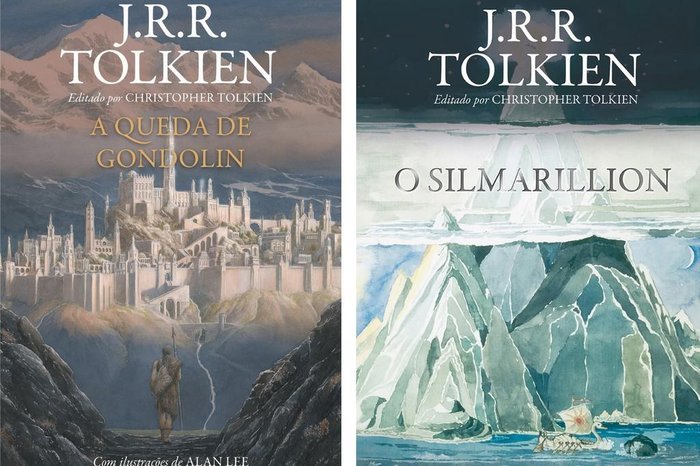



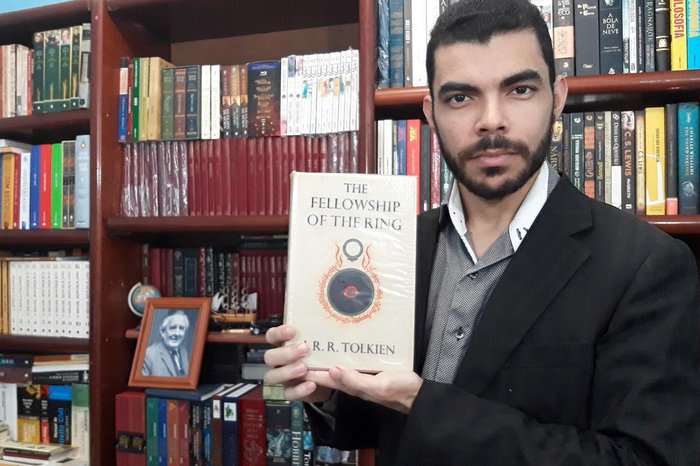

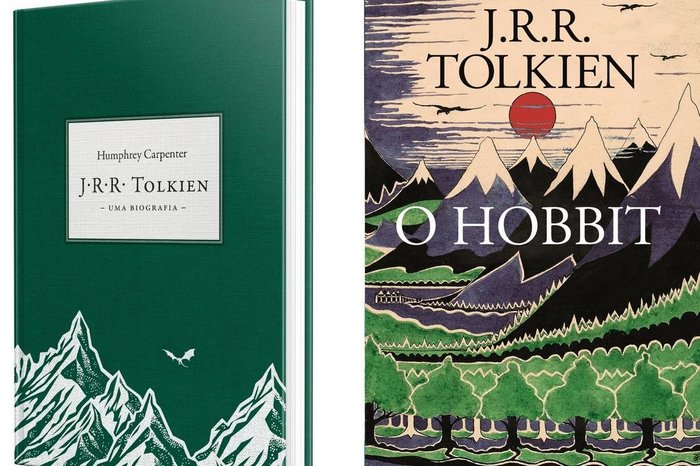




 ) que irão se comunicar utilizando linguagem de gênero "neutro".
) que irão se comunicar utilizando linguagem de gênero "neutro". 


